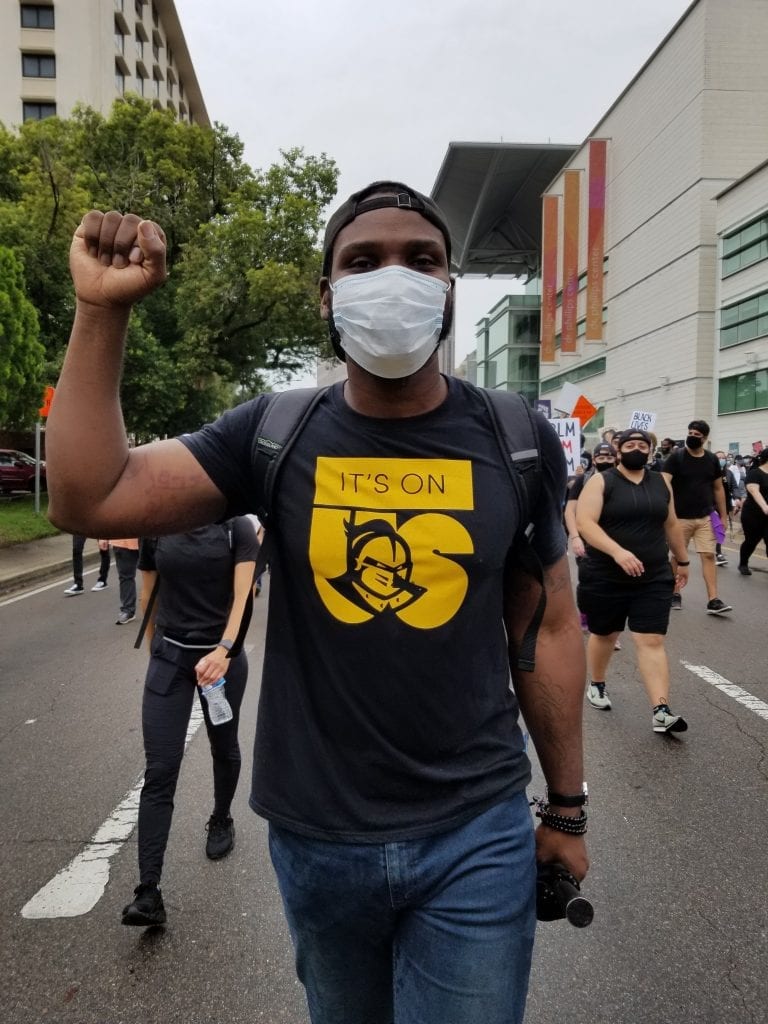Political Science Alumnus Sees Change Coming in Fight For Equality

By Whit Chisholm ’17
I really believe we are witnessing the early elements of a political revolution.
When I took Contemporary Revolution and Political Violence, I never thought I’d actually witness or play a role in one. One thing I learned in that class was that a sharp reversal of economic fortune and widespread frustration with the socio-political situation are two leading factors in sparking a change. My generation in particular and the those coming behind us, have graduated from college into an economic climate where we are forced to work three times as hard for half the gains of previous generations. The COVID-19 pandemic, followed by the death of George Floyd, not only initiated our current push for change, but will continue to influence our cries for justice.
As a black man born in the majority-black country of Jamaica, these protests matter to me. They matter because I’ve felt the difference between being black in public spaces in America, and what it’s like to be black in Jamaica. I can just be myself in Jamaica, and it has nothing to do with my skin color.
On June 6, I joined thousands of others in downtown Orlando to march for equality. The experience of being at the protest felt uplifting. We chanted ”black lives matter” in unison. We repeated the names of those murdered as a result of police actions. I saw law enforcement take an unnecessarily aggressive posture towards peaceful protesters. We are living our democratic principles.
In that moment I drew on my personal experiences with racism, both overt and covert. When I worked at Starbucks in college, some customers would refuse to take drinks I made for them, but would take the same drink if I passed it to a white coworker to give to them without the customer noticing. Or in more subtle ways, such as crossing the street instead of walking past me, or telling me I “don’t sound black.”
Recently I’ve never felt more inspired to do something — whether run for office or be part of an organization working towards real change in America’s legal system.
This country was founded on the right to protest and to voice dissenting opinions, to be able to demand a course correction when you think those in office are moving in the wrong direction, and to express your dissatisfaction — without having to wait until “the Tuesday next after the first Monday in the month of November.”
My biggest takeaway from what I was a part of is that we’re the ones that have to bring the change we want. We can’t rely on politicians. The system is broken, and that’s reflected in how unresponsive our legislature has been. And when they take action it’s rarely in the favor of the average citizen. We have to be angry. We have to use this anger to bring change. Our anger gets things done.
